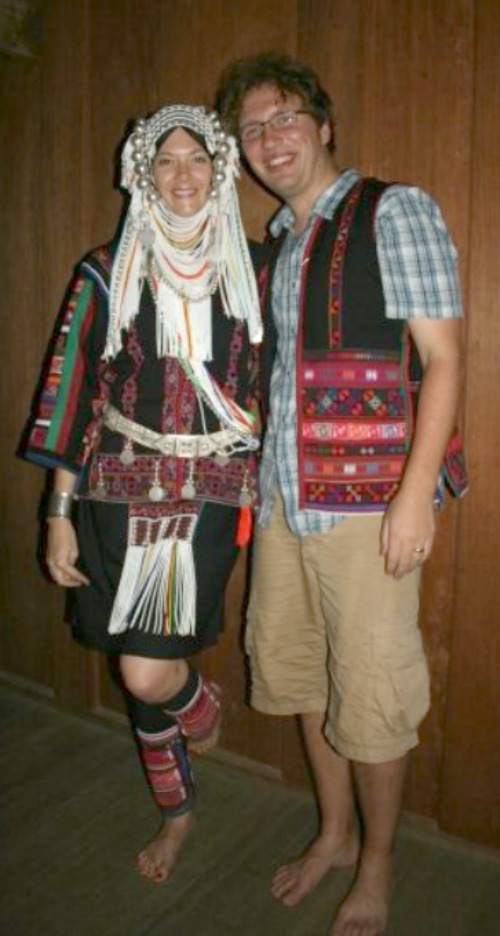 This is just one of many interviews that make up the True Story series. We talk to interesting people who are doing amazing/challenging/inspiring things. This is the story of my fantastic friends Amanda and Daniel. They’re both working on their PhDs in Developmental Sociology – which means they get to live with hill tribes in Thailand! How jealous am I?!
This is just one of many interviews that make up the True Story series. We talk to interesting people who are doing amazing/challenging/inspiring things. This is the story of my fantastic friends Amanda and Daniel. They’re both working on their PhDs in Developmental Sociology – which means they get to live with hill tribes in Thailand! How jealous am I?!Living with Hill Tribes in Thailand
Tell us about the Thai hill tribe group that you live with.
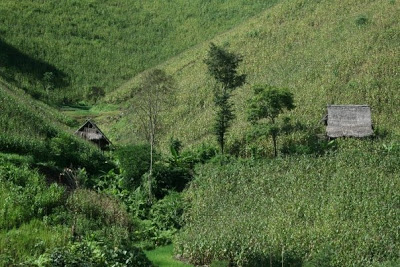
How did you come to live with the hill tribes in Thailand?
Anyway, we are here doing our dissertation research, which is how/why we encountered our Akha friends. We are both working on our PhDs in Development Sociology. My wife’s work is on citizenship, education and family livelihood decision-making in highland communities. Sadly, many highland people in Thailand have not been given citizenship, which amounts to an enormous barrier in attaining education, employment, health care, etc. – really, basic human rights. My work is on state forest conservation and upland agriculture, especially related to land tenure issues and how they affect land-use decision-making. Upland people in Thailand are forbidden from owning land or practicing their traditional farming methods. This has obviously caused a lot of problems for upland communities and, I’m starting to see, is actually undermining forest conservation, as well.
Have you celebrated any holidays in the Thai village?
The highlight of the festival is the swing ceremony. They built a huge swing out of four trees, which they arranged in a sort of tepee formation, with a long rope (made of natural fibers) hanging down in the middle. According to Akha custom, you are age one when you are born, and then each year, when you swing, you become one year older. So, everyone in the village becomes one year older on the same day!
All the women rode the swing first. They sit in the loop at the bottom of the rope and someone uses another small rope attached to the big rope to pull them back and forth. They got really high – maybe 20 feet! Then Amanda rode and lost her shoes in the process, which got a lot of laughs. Then, I rode. The short version of the story is that I rode like a woman and nearly killed the village headman who was trying to pull me back and forth. People still laugh about it to this day!
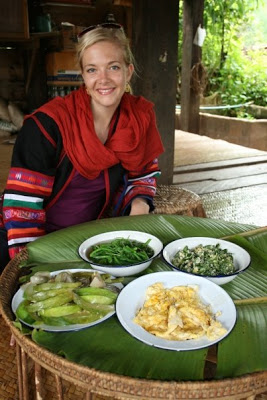 What do you eat on an average day with the Thai tribespeople?
What do you eat on an average day with the Thai tribespeople?
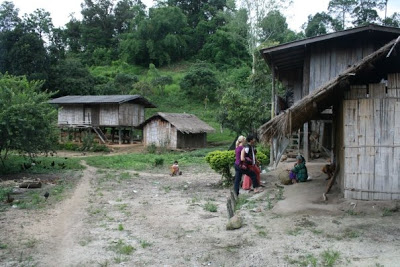 Has integration into Thai hill tribe village life been difficult?
Has integration into Thai hill tribe village life been difficult?
They’ve even given us Akha names. Amanda’s name is Mi Chaw, which means ‘tall and beautiful woman.’ They are always commenting on how beautiful she is, on her white skin, her blonde hair, blue eyes, etc. (which, of course, makes her terribly uncomfortable!). They love to dress her up in their Akha outfits, which is fun and really funny, as she is a good seven or eight inches taller than them, so the outfits don’t exactly fit her perfectly.
My name is Li Ma, which means ‘big boy.’ They are constantly telling me how huge I am. The average Akha man is about 5’6” and 130 pounds. I’m about 6’2” and a hair under 200 pounds. So, yes, I am gigantic. A favorite activity when a group is gathered is to have me stand next to things (doorways, houses, buffalo, etc.) so they can laugh at how big I am (many of their doorways come up to about my neck). They still can’t figure out how a vegetarian became so huge! Sometimes, when I am walking around the village, old people will grab me by the arm to tell me that I am very large. It’s quite funny and all in good fun, and I’m actually relieved that there can be some laughs at my expense, given the circumstances.
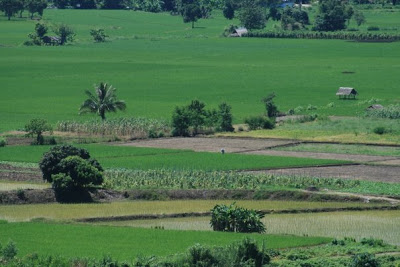 How difficult is communication with the Thai tribespeople?
How difficult is communication with the Thai tribespeople?
Akha is one of the most difficult languages either of us has ever encountered. It’s very guttural with many sounds that are difficult for us to decipher. It is not at all related to Thai. Thankfully, most people in the villages under the age of about 50 speak at least some Thai or northern Thai. Pretty much everyone under 30 speaks fluent Thai. So, for the most part, communication with the young people isn’t too much of a challenge. Also, we have a research assistant who speaks Akha, Lahu, Hmong, Karen, Thai, northern Thai and southern Thai. Needless to say, he’s been invaluable in helping us communicate with older Akha people, as well as people from other groups (in both villages, there are several Lahu families). That said, he can’t be everywhere with both of us all the time, so we’ve definitely bumped into some communication challenges. I guess the key is to just smile and show that you are trying.Actually, most of my funniest miscommunications have been in Thai. I once tried to say that I was going to take some medicine, but I accidentally got the tone wrong and said that I was going to eat my grandmother. There are plenty more, but my worst and most embarrassing one was about 7 months ago at Chiang Mai University. I had to stand up in front of a room of professors, graduate students, and even the dean of the school and give a little speech in Thai. I tried to say “Thank you to all of the professors for their hard work in the classroom.” Well, I sort of forgot one important word. What I actually said was, “Thank you to all of the professors for taking a sh** in the classroom!” Needless to say, there were a few shocked expressions in the audience!
Tell us about an average day in the Thai tribal village?
An ‘average day’ really depends on the time of year, as much of their life revolves around agriculture. Lately, we’ve been preparing their fields for planting. The last couple of times we’ve been up there, we get up early (you can’t sleep in because of the dogs barking, the pigs squealing, the kids playing, people talking, etc.), eat breakfast, drink a little rice whiskey, and head out to the fields.
Some of the jobs we’ve done recently include: clearing fields (cutting bamboo and brush with machetes), burning fields, building a small dam, collecting firewood, cutting and hauling grass to build a roof, building a roof, looking after the water buffalo, bringing in a late rice harvest, harvesting ginger and bananas, chopping banana trees to feed to pigs, etc. It’s pretty great.
I actually really enjoy working with them in their fields. At the end of the day, after a very cold ‘shower’ (dumping cold water over your head), we sit down to great food and plenty of rice whiskey! The women work in the fields, too, but usually head home a little earlier to prepare dinner. The women in the villages work incredibly hard. Most men work hard, too, but the women are unbelievable. The older people usually look after the kids during the day. Amanda sometimes works in the fields, and sometimes stays in the village to interview people, help out with household duties, play with kids and even teach English.
What are the biggest challenges of living in the tribal Thai village?
The rice whiskey! Kidding (sort of). I think the biggest challenge is still feeling like we are imposing on people by being there. Not so much with our ‘families,’ but with other people in the village. We are at the point where we have made some good friends and gotten to know several people in the villages, but each village has over 300 people, so we are still strangers to many people. But it’s getting better as we spend more time there and get to know more people.
What have you learned from this experience of living with Thai hill tribes?
We’ve learned so much from this experience. Every day we feel like the more we learn, the more we don’t know! But mostly we’ve seen that, beyond superficial differences, we are all much more alike than we are different – we all love our families and friends and hope for peace and happiness. We’ve really been inspired by the warmth and generosity of the people, and can’t help but feel, with each encounter, a renewed faith in the human spirit. It really is a special experience for us. Just like everyone, our lives get crazy and we get bogged down with work and stress and worrying about the future, but we try to remember to be present in the moment, to not let a day pass without recognizing how fortunate we are to be having this experience and to be sharing it with each other.
Would you want to do something like this? Any questions for Daniel and Amanda?
Got the travelbug? Check out my ebooks and podcasts on making long-term travel a reality! Only $15 forpetessake!



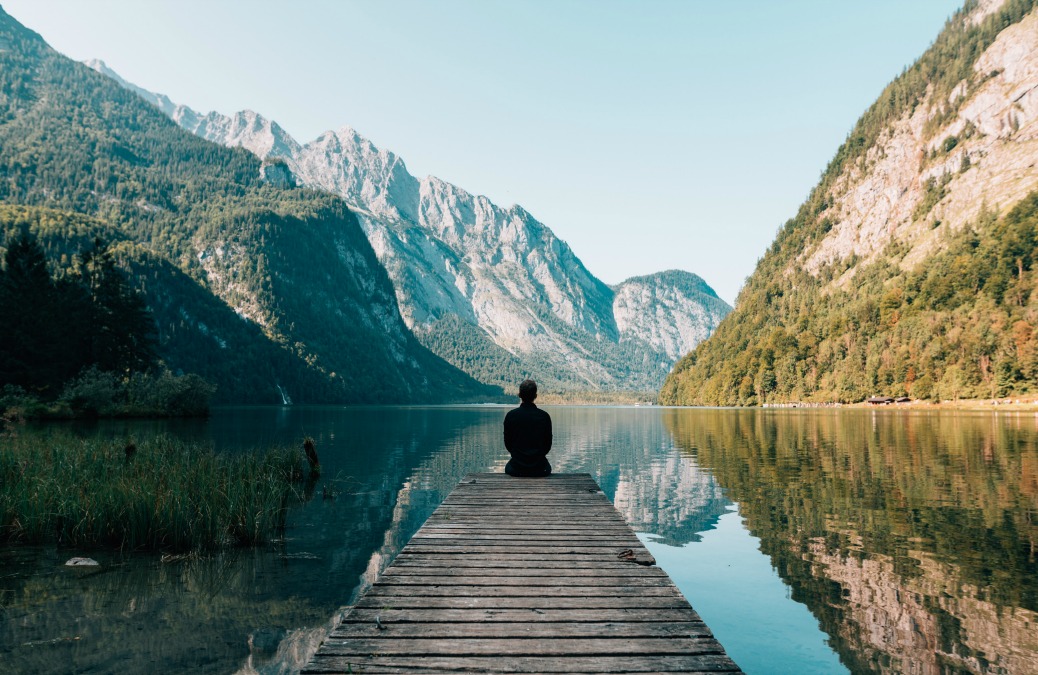








That's an incredible story. Wow. What an experience.
This is so awesome!! Count me as jealous.
I'm actually a Sociology undergrad intending to go to grad school for my Phd in 2 years. Any suggestions for how to go about the grad school search? If it's not too personal, did you have problems obtaining grants/scholarships?
–C
Thanks for the comments!
C, we would be happy to talk with you more about it. Sarah Von has our email addresses.
— Daniel & Amanda
OH WOW!
that is so incredible!
what an awesome experience!
What a great story! I studied Sociology for my undergrad, too!
It's a great story. Could you please help get me contact with the village? I'd like to spend weeks with the Akha people as I am planning to write a novel featuring hill tribes in Burma and Thai Land. Thanks
Wow! Jealous and inspired. Any tips on how to get involved (anywhere) for those of us who have no associations with work/school/lots of money? So far as I can tell grants are only available to scholars or writers :C
This was great reading, I could really relate to so much of what they told.
I my self (a 32 year old Norwegian woman) did my fieldwork in (mainly) a village in the Chiang Rai province on the border of Myanmar. An Akha village to be precise. It was a unique experience. My topic was place and Identity and it focused on changes in the Akha identity when they got more closely related with the Thai culture. I also visitet a few more villages to interview people and that was so interesting. My main village was "very Akah", almost non of the people over 30 spoke Thai, and non spoke any English, but they did have some electricity in the village, and the headman had a tv.
I really miss them, I have not been able to go back and visit since my fieldwork 7years ago.
It would be great to hear more about your experiences and where you have been. Maybe we have visitet the same villages?
You can contact me on my e-mail:
ingrid_sommer_2000@yahoo.no
If you would like.
Ingrid